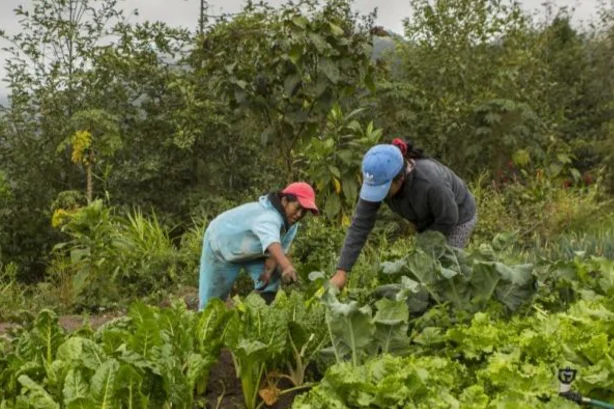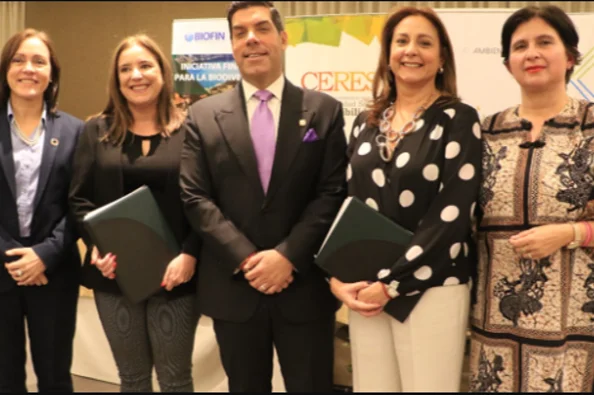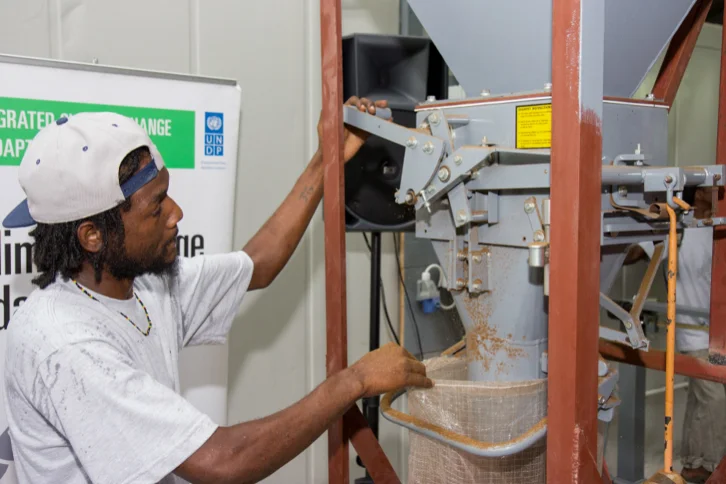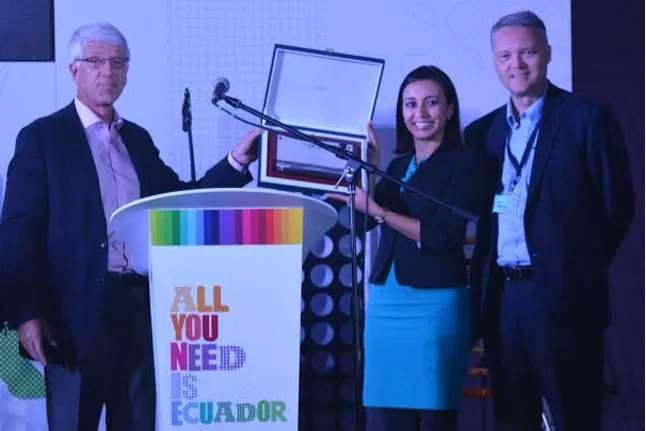Sustainable Agriculture with Gender Inclusion and Participation | Ecuador

In Quito, Ecuador, nature and sustainability are treated as an integral component of development rather than as an afterthought. Green infrastructure and nature-based solutions are key to the City´s mitigation and adaptation strategies for securing the provision of ecosystem services. One such solution is the project Sustainable Agriculture with Gender Inclusion and Participation in Quito, which is run by the city to improve food security, urban agro-ecology, climate change adaptation, and nutrition.
The program has been working together with women and female-headed households for over a decade to improve the quality of life of the most vulnerable people of the Metropolitan District of Quito. Thanks to training courses, technical assistance, and support resources, the program has helped thousands of residents to start their own urban gardens and apply sustainable practices to make positive changes in their lives. Furthermore, it contributes to carbon emission reductions, is an adaptation response to climate change, as well as generating citizen participation and solidarity within local economic development.
Key facts
- 352,600 people benefit from the program; comprising 56,000 urban farmers, 85.71% of which are women, and 170,000 consumers.
- Women represent 85.71% of the participants.
- Since the start of the project, 16,700 participants have been trained, 2,500 urban gardens opened, and 110 urban agriculture startups promoted with 105 different food products.
The problem
People who live in Quito, women in particular, have limited access to formal education and, employment. They also face barriers in gaining access to land, water, labor, capital, technology, and other resources. According to a study of vulnerability to climate change in Quito the impacts of extreme rainfall events and change in temperature will likely impact the most vulnerable ecosystems, sectors, and social groups. It is expected that by 2050, five sectors will be more vulnerable to climate change: water, health, agriculture, ecosystems and risks (forest fires).
The solution
The project promotes and validates alternative and sustainable land management approaches through the implementation of climate change adaptation actions. It also ensures food and nutrition security and universal health access, which are essential for poverty eradication and climate resilient sustainable development. The project fosters sustainable and safe agricultural production and agri-business, with a focus on micro-enterprise management and access to different markets. Additionally, it improves participants’ earnings by generating jobs, as well as helping them to save money by consuming their own products.
The program has become a “seedbed” of agricultural micro-business, such as the production of organic vegetables, fruits, crops, medicinal and ornamental plants, animal husbandry, beekeeping, and food processing. A gender-responsive and human rights approach is crucial to strengthening technical capacities of urban and peri-urban farmers and the formation of human capital. Gardens and small farms play an essential role in the lives of the participants. By strengthening rural and urban linkages, it promotes the understanding of the importance of ecosystem services to provide a sustainable life in urban areas.
Helping the planet
While native ecosystems represent 60% of the territory of the Municipal District of Quito, accelerated growth of urban sprawl exerts strong pressure on native ecosystems, vegetation cover, and land-use. This project, by promoting sustainable practice in agriculture and the use of vacant land for the growth of food, is protecting the City´s natural surroundings and forests, pursuing joint environmental governance, sustainable land management, and integrated human development.
Replacing chemical fertilizers with organic waste has had beneficial effects on both emission reductions and city waste management. Production of seasonal crops and promoting local consumption has also helped to reduce food-related greenhouse gas emissions. Work on the project is fostering resilience by recovering degraded ecosystems and thus increasing biodiversity levels, promoting sustainable use of resources, and the revaluation of urban land for food production.
Helping people
Climate is responsible for 30 % of productivity variations globally. Extreme weather or changes in rainfall and temperature can result in crop damage, which impacts farmers’ incomes and food security. Also, unsustainable agricultural practices can lead to high greenhouse gas emissions, reductions in soil fertility, loss of water retention capacity, and eventual soil erosion. Innovative solutions to understand and utilize climate information are helping farmers in Colombia and Honduras adapt their practices to climate variability and change and making more efficient use of water and agrochemicals.
 Albania
Albania Algeria
Algeria Andorra
Andorra Argentina
Argentina Armenia
Armenia Australia
Australia Austria
Austria Azerbaijan
Azerbaijan Bahrain
Bahrain Belgium
Belgium Bolivia
Bolivia Brazil
Brazil Bulgaria
Bulgaria Cambodia
Cambodia Cameroon
Cameroon Canada
Canada Chad
Chad Chile
Chile China
China Colombia
Colombia Costa Rica
Costa Rica Croatia
Croatia Cyprus
Cyprus Czechia
Czechia Denmark
Denmark Ecuador
Ecuador Egypt
Egypt Finland
Finland France
France Georgia
Georgia Germany
Germany Ghana
Ghana Greece
Greece Hungary
Hungary Iceland
Iceland India
India Indonesia
Indonesia Ireland
Ireland Italy
Italy Jamaica
Jamaica Japan
Japan Jordan
Jordan Kazakhstan
Kazakhstan Kenya
Kenya Kuwait
Kuwait Latvia
Latvia Lebanon
Lebanon Libya
Libya Lithuania
Lithuania Luxembourg
Luxembourg Malaysia
Malaysia Maldives
Maldives Mali
Mali Malta
Malta Mexico
Mexico Moldova
Moldova Monaco
Monaco Morocco
Morocco Netherlands
Netherlands New Zealand
New Zealand Nigeria
Nigeria North Macedonia
North Macedonia Norway
Norway Oman
Oman




